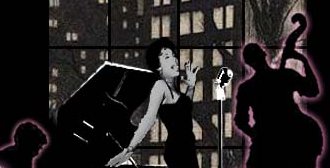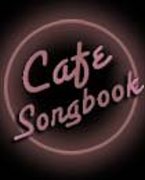Welcome toCafe SongbookInternet Home of the |
 |
 |
| Home || Songs || Songwriters || Performers || Articles and Blogs || Glossary || About Cafe Songbook || Contact/Submit Comment | |
| Search Tips: 1) Click "Find on This Page" button to activate page search box. 2) When searching for a name (e.g. a songwriter), enter last name only. 3) When searching for a song title on the catalog page, omit an initial "The" or "A". 4) more search tips. | |
Dubose Heyward |
||
|
Basic InformationBorn: August 31, 1885, Charleston, South Carolina, (US) Died: June 16, 1940 (age 54), Tryon, North Carolina, (US) Primary songwriting role: lyricist; also alibrettist, poet, novelist, and playwright Co-writers: chiefly Geroge Gershwin and Ira Gershwin. Other Heyward co-writers who are featured on Cafe Songbook: Jerome Kern. |
|
Overview and Commentary |
|
 William Zinsser. Easy to Remember The Great American Songwriters and Their Songs. Jaffrey, New Hampshire: David R. Godine, 2001.
|
Although Dubose Heyward, poet, playwright and librettist, was a central figure in both the Charleston and the Southern Renaissance, and his influence extended to the Harlem Renaissance, he is remembered mostly for his role in bringing Porgy and Bess into being. Heyward, a native of Charleston, South Carolina, wrote Porgy (1925) a best selling novel, the story of which underpins both the subsequent Theater Guild dramatic production of 1927 that he co-wrote with his wife Dorothy Heyward and the opera Porgy and Bess. Heyward proposed the idea of an operatic version of Porgy to the Gershwins even before the play was mounted, which only after a series of delays for legal and other reasons they were finally able to take up, create and get produced in 1935. When George Gershwin did undertake the project, he traveled, as Heyward suggested he should, to South Carolina living with Heyward in Charleston and then in a shack on Folly Island off the South Carolina coast in order to absorb the Gullah culture he needed to experience deeply the roots of the story as well gain a feel for the music he was writing. He found there "what Heyward called 'an inexhaustible source of folk material'" (Zinsser, p. 96). Heyward was originally intended to write only the libretto for the opera, but as his involvement grew his poetic inclinations led him to write lyrics for George Gershwin's melodies. Heyward received sole credit for the lyrics for Porgy and Bess songs such as "Summertime," "Bess, You Is My Woman, Now," and my "My Man's Gone Now," and co-credit with Ira Gershwin for others. As William Zinsser put it, "Heyward's are the 'poetic' songs like 'Summertime' rich in Southern imagery. Few American lyrics are so fondly remembered:
"Ira Gershwin couldn't have written that lyric--fish and cotton weren't his domain--and Heyward couldn't have written Ira's 'It Ain't Necessarily So.' Zinsser also notes that in their collaborations "Heyward was grateful for Ira's vast experience and skill, Ira Grateful for Heyward's knowledge of the Negro community and vernacular" (Zinsser, p. 96). Although Stephen Sondheim comments that poets tend to be poor lyricists, he makes an exception for Heyward of whom he says, "Heyward's lyrics for Porgy and Bess are, as a set, the most beautiful and powerful in our musical-theater history. This is chiefly owing to the fact that although he was a poet rather than a lyricist, his verse was colloquial enough for the medium, and George Gershwin was a collaborator inventive enough to set what he wrote with minimum changes and maximum force" (Sondheim, pp. 19, 176). Overall, Heyward had a hand in writing in the neighborhood of three-quarters of the songs for the show including all of the lyrics for the first act. Before the Heywards (Dubose and Dorothy) had a chance to work with the Gershwins again, as they had hoped to do, George died in 1937, Dubose in 1940. |
| back to top of page | |
Cafe Songbook |
|||
|
A video made by David Farrow that illustrates Dubose Heyward's poem "Dusk," a tribute to his native Charleston. |
Ella Fitzgerald sings "The Buzzard Song" (lyrics by Dubose Heyward, music by George Gershwin)
|
||
| back to top of page | |||
|
|
|||||||||||
| back to top of page | ||||||||||||
Visitor CommentsSubmit comments on songs, songwriters, performers, etc.
Feel free to suggest an addition or correction. Please read our Comments Guidelines before making a submission. (Posting of comments is subject to the guidelines. Not all comments will be posted.) |
| To submit a comment, click here. |
Posted Comments on Dubose Heyward:
No comments as yet posted |
| back to top of page |
Credits(Dubose Heyward page) |
Credits for Videomakers of videos used on this page:
Borrowed material (text): The sources of all quoted and paraphrased text are cited. Such content is used under the rules of fair use to further the educational objectives of CafeSongbook.com. CafeSongbook.com makes no claims to rights of any kind in this content or the sources from which it comes.
Borrowed material (images): Images of CD, DVD, book and similar product covers are used courtesy of either Amazon.com
Any other images that appear on CafeSongbook.com pages are either in the public domain or appear through the specific permission of their owners. Such permission will be acknowledged in this space on the page where the image is used.
For further information on Cafe Songbook policies with regard to the above matters, see our "About Cafe Songbook" page (link at top and bottom of every page). |
| Home || Songs || Songwriters || Performers || Articles and Blogs || Glossary || About Cafe Songbook || Contact/Submit Comment | |
© 2009-2018 by CafeSongbook.com -- All Rights Reserved |



